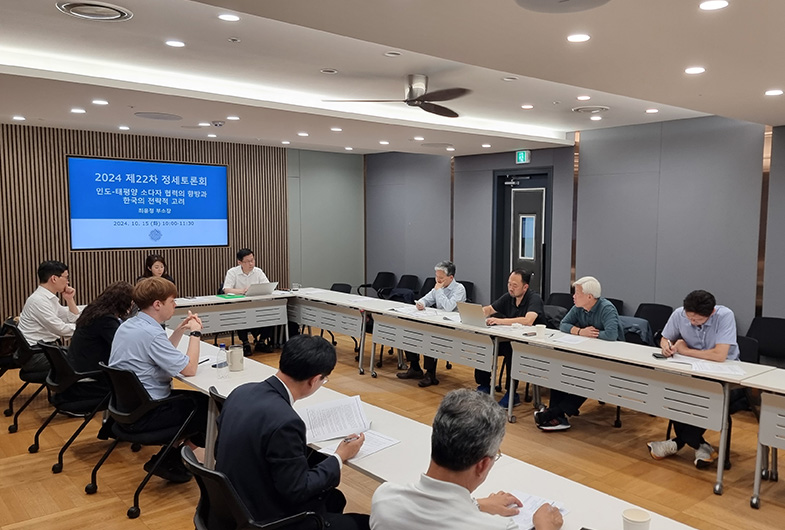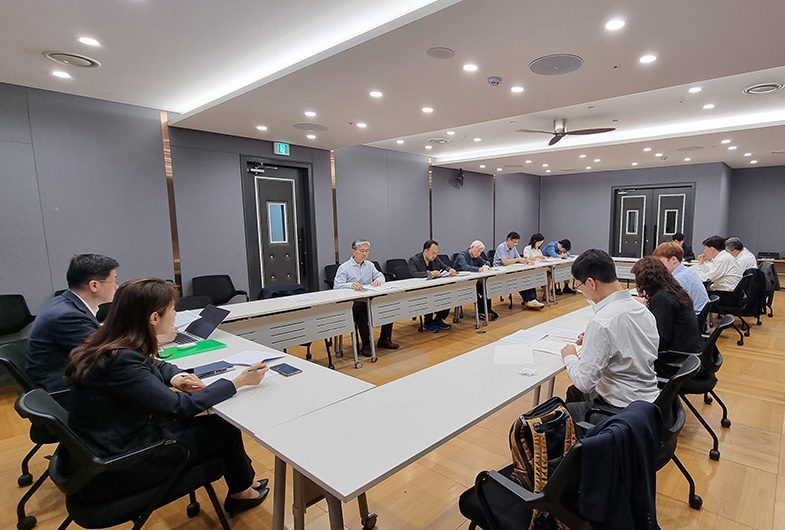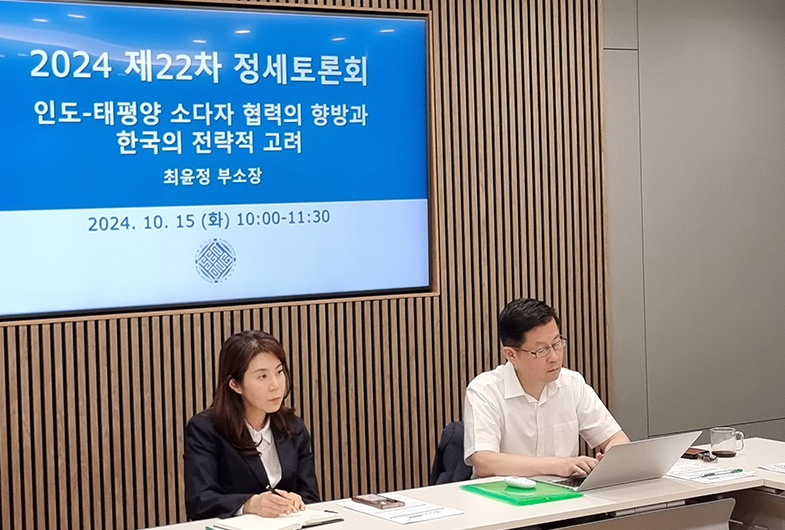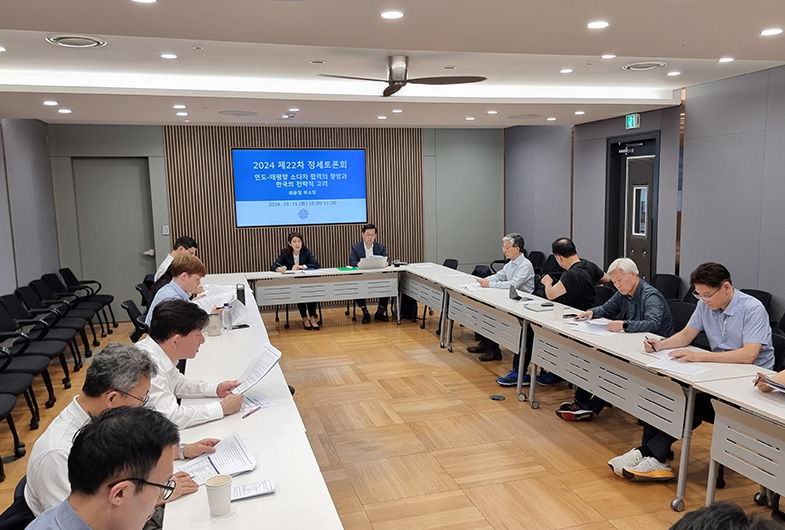On October 15th, Yoon Jung Choi, Vice President of Sejong Institute gave a presentation on "The Future of Indo-Pacific Minilateral Cooperation and South Korea's Strategic Considerations" at the 22nd Colloquium.
The discussion was moderated by Seong Chang Cheong, Director of the Center for Korean Peninsula Strategy.
Minilateral cooperation has not been a priority or option in South Korea's diplomacy. However, in an era of war and increasing blocization, it has become urgent to explore whether South Korea can rely solely on its alliance with the United States to safeguard its security and prosperity and what other options are available. Especially in the Indo-Pacific region, where multilateral security cooperation is expanding beyond bilateral partnerships, traditional and non-traditional security threats are rapidly increasing. However, there is a lack of an effective multilateral security system compared to other regions such as Europe.
Korea also promotes minilateral cooperation in various ways but is not a formal participant in QUAD or AUKUS. In the case of QUAD, Korea is not an official member, but it has expressed interest in participating in certain areas of cooperation in working groups and has shared interests and continued discussions with member countries on various issues. In the case of AUKUS, it is more than a military consultative organization, and South Korea's potential participation in AUKUS Pillar 2 is being closely watched.
South Korea is pursuing new trilateral cooperation with the United States, Japan, and India, as well as expanding bilateral cooperation with the Pacific Island nations and ASEAN countries. Whichever administration comes to power in the United States after the 2024 U.S. election, South Korea should look to strengthen the U.S.-ROK alliance and expand multilateral cooperation that can increase South Korea's leverage.
After the 6th Quad Leaders' Summit on September 21, the 16th BRICS summit in October, various ASEAN-led meetings, the G20, and various other sideline summits are scheduled, it is necessary to review the development and progress of cooperation and establish Korea's minilateral strategy.
In a fragmented world, expanding minilateral cooperation is not an option but a necessity, and it is necessary to envision a diverse portfolio of minilateral cooperation, expand independent minilateral cooperation activities, and lead cooperation in areas of competitive advantage such as maritime security, science and technology security, economic security, and supply chain.



